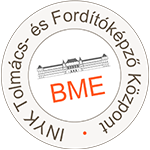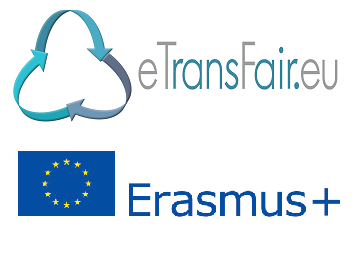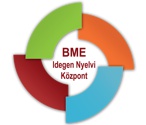Trainee report on Nóra Csiszár’s and Domonkos Barna’s lecture
Trainee report on Nóra Csiszár’s and Domonkos Barna’s lecture
Within the framework of the Mentoring Scheme held on 9 March, we could hear Nóra Csiszár’s and Domonkos Barna’s presentation, in which they spoke about full-time employment at the European Union.
Nóra worked as a staff interpreter at the European Court of Justice in Luxembourg for years, and Domonkos was a staff translator at the European Parliament. They told us how they started their career, how they got to the European Union and what it was like to work there. We got acquainted with the functioning of the institutions from the perspective of language specialists, which was really interesting. Earlier we had heard a lot about the European Union and its functioning in theory, so it was useful to gain about a first-hand insight into the job of full-time translators and interpreters.
We were provided with answers to the following questions:
- Is the European Union really such a good workplace as they say it is?
- What kind of texts do Parliament translators have to work with?
- How do court interpreters prepare themselves for a case?
- What kind of further training and language learning opportunities are available at each institution?
- What happens if a high-profile speaker faints midsentence?
We got to know what a family-friendly workplace the European Union is, and which are the main differences between working for the Commission or for the Parliament. It also became clear what privileges court interpreters have and what difficulties they have to face at the ECJ as opposed to the problems encountered by EC or EP interpreters. Furthermore, the most important questions about the competitive examination and workforce supplementing came up as well. Certain parts of the examinations have been significantly changed since Hungary’s EU accession. Moreover, there are far more ambitious and qualified experts dreaming of an EU career nowadays than in the early 2000s. Although nothing is impossible, it is not easy for those people who would like to work “eurocrats” in the future.
Nóra and Domonkos are now working in Hungary, and they spoke about the Hungarian translation market and the differences between working here and at the European Union. They both agreed that working abroad for a couple of years can change one’s attitude, so family ties and roots become more important. Although being a freelancer usually involves higher levels of uncertainty and difficulties than EU full-time jobs do, the freedom and the variety of assignments make the Hungarian market more attractive.







